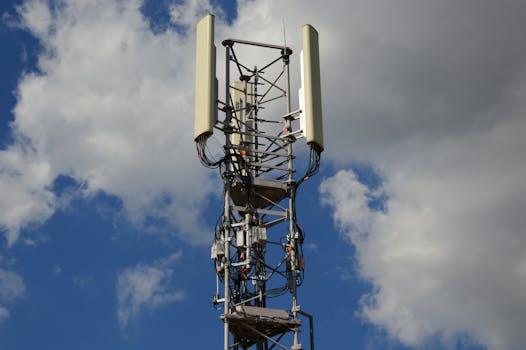5G Technology Advancements and Impact on Mobile Networks

5G Technology Advancements and Impact on Mobile Networks
5G technology advancements have been transforming the mobile network landscape, offering unparalleled speeds, reduced latency, and enhanced connectivity. The fifth generation of wireless technology has been gaining momentum worldwide, with numerous countries and telecom operators investing heavily in 5G infrastructure. As we explore the latest developments in 5G technology, it becomes evident that this revolutionary technology is poised to reshape the future of mobile communications.
5G technology advancements are built upon the foundation of several key components, including millimeter wave (mmWave) spectrum, massive MIMO, and network slicing. The mmWave spectrum offers a vast amount of bandwidth, enabling faster data transfer rates and lower latency. Massive MIMO, on the other hand, allows for the simultaneous transmission of multiple data streams, increasing the overall network capacity. Network slicing, a crucial aspect of 5G, enables the creation of multiple virtual networks, each optimized for specific use cases and applications.
Impact on Mobile Networks
The impact of 5G technology advancements on mobile networks is multifaceted. One of the most significant advantages of 5G is its ability to support a vast number of devices, making it an ideal solution for IoT (Internet of Things) applications. The reduced latency and increased speeds offered by 5G also enable real-time communication, paving the way for mission-critical applications such as remote healthcare and autonomous vehicles. Furthermore, 5G technology advancements have the potential to revolutionize the way we consume media, with seamless video streaming and online gaming becoming a reality.
Another significant aspect of 5G technology advancements is their potential to enable new use cases and applications. For instance, the use of 5G in smart cities can help optimize traffic management, energy consumption, and public safety. The application of 5G in industries such as manufacturing, logistics, and healthcare can also lead to increased efficiency, productivity, and innovation. As 5G technology continues to evolve, we can expect to see new and innovative applications emerge, transforming the way we live and work.
Challenges and Limitations
Despite the numerous benefits offered by 5G technology advancements, there are also several challenges and limitations that need to be addressed. One of the primary concerns is the lack of standardization, which can lead to interoperability issues and fragmentation. The high cost of 5G infrastructure is another significant challenge, making it difficult for smaller telecom operators to invest in 5G technology. Additionally, the availability of 5G spectrum and the need for frequent hardware upgrades can also pose significant challenges.
Security is another critical aspect of 5G technology advancements that needs to be addressed. The increased complexity of 5G networks and the use of software-defined networking (SDN) and network functions virtualization (NFV) can create new vulnerabilities, making it essential to implement robust security measures. As 5G technology continues to evolve, it is crucial to prioritize security and develop effective strategies to mitigate potential threats.
Conclusion
In conclusion, 5G technology advancements have the potential to revolutionize the mobile network landscape, offering unprecedented speeds, lower latency, and greater connectivity. As we continue to explore the latest developments in 5G technology, it becomes evident that this revolutionary technology is poised to reshape the future of mobile communications. While there are several challenges and limitations that need to be addressed, the benefits offered by 5G technology advancements far outweigh the drawbacks. As the world becomes increasingly connected, 5G technology will play a vital role in enabling new use cases, applications, and innovations, transforming the way we live and work.


